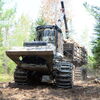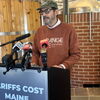Processing Your Payment
Please do not leave this page until complete. This can take a few moments.
- News
-
Editions
-
- Lists
-
Viewpoints
-
Our Events
-
Event Info
- Women's Leadership Forum 2025
- On the Road with Mainebiz in Bethel
- Health Care Forum 2025
- On The Road with Mainebiz in Greenville
- On The Road with Mainebiz in Waterville
- Small Business Forum 2025
- Outstanding Women in Business Reception 2025
- On The Road with Mainebiz in Bath
- 60 Ideas in 60 Minutes Portland 2025
- 40 Under 40 Awards Reception 2025
- On The Road with Mainebiz in Lewiston / Auburn
- 60 Ideas in 60 Minutes Bangor 2025
Award Honorees
- 2025 Business Leaders of the Year
- 2024 Women to Watch Honorees
- 2024 Business Leaders of the Year
- 2023 NextUp: 40 Under 40 Honorees
- 2023 Women to Watch Honorees
- 2023 Business Leaders of the Year
- 2022 NextUp: 40 Under 40 Honorees
- 2022 Women to Watch Honorees
- 2022 Business Leaders of the Year
-
-
Calendar
-
Biz Marketplace
- News
- Editions
- Lists
- Viewpoints
-
Our Events
Event Info
- View all Events
- Women's Leadership Forum 2025
- On the Road with Mainebiz in Bethel
- Health Care Forum 2025
- On The Road with Mainebiz in Greenville
- On The Road with Mainebiz in Waterville
- + More
Award Honorees
- 2025 Business Leaders of the Year
- 2024 Women to Watch Honorees
- 2024 Business Leaders of the Year
- 2023 NextUp: 40 Under 40 Honorees
- 2023 Women to Watch Honorees
- 2023 Business Leaders of the Year
- + More
- 2022 NextUp: 40 Under 40 Honorees
- 2022 Women to Watch Honorees
- 2022 Business Leaders of the Year
- Nomination Forms
- Calendar
- Biz Marketplace
Yale Cordage gets a lift from arborist partnership
 PHOTo / Tim greenway
Bill Putnam, president of Yale Cordage in Saco, says customized rope products are helping the company grow.
PHOTo / Tim greenway
Bill Putnam, president of Yale Cordage in Saco, says customized rope products are helping the company grow.
Saco's synthetic rope manufacturer Yale Cordage got its latest endorsement from on high. The company's heavy-duty yet lightweight Kernmaster rope is being used by arborists in South Africa to explore the canopies of ancient trees, much to the delight of Bill Putnam, the company's president.
Putnam says the company wants to supplant industrial use of steel wire rope and steel rods with its lighter and stronger materials. The South African project will help boost Yale Cordage's profile with arborists, says Putnam, a market segment that now makes up around 15% of its business around the world. That segment has grown with the company as it has expanded its product lines and nearly doubled its work force in the last decade; about 100 people work at Yale Cordage now. The following is an edited transcript of a conversation with Putnam:
Mainebiz: How important are these kinds of endorsements to your business?
Bill Putnam: They're very important. In the last couple of years, we've increased how much we talk about the business and keep people aware of our capabilities. It's important to continue to do that and make sure people know what we're doing, what we're capable of doing and where we're showing up.
MB: How does the latest recognition fit into that?
BP: People like to read what the professionals are using. It's great when people write about your product in positive ways. The arborist community is very tuned in to social media. The fact that [adventurer and extreme climber]Drew Bristow is working in South Africa with our ropes exploring ancient trees is not the key point, but that he's doing something interesting in the arborist community. We hope this will be reflected in sales growth worldwide and not just in South Africa necessarily.
MB: Are there other factors driving sales among arborists?
BP: There's a change in expectations for worker safety in areas of the globe where you wouldn't think of people being concerned about it. What that means is that they're going away from using whatever rope they find to using specialized products for the tree care industry in parts of the globe where they were using 30-year-old technology. It's a growth area for us.
MB: How much of your business is in international markets?
BP: Of our overall business, it's about 15%. It's a fairly significant and important part of our business. We sell an awful lot into the United Kingdom and then quite a lot into the other EU countries — we've got a good distributor in Italy and Germany and the Netherlands, and a good distributor in Japan. We have one regular customer there and other large ones in Australia and New Zealand.
MB: Which areas of the business are growing fastest?
BP: A lot of the markets we're in are industrial markets. We had grouped them into that one category. But we realized [our ropes] had applications in certain industrial segments. For instance, we always had a presence in mining, but now that's a growth area for us. We used to look at all of that under [the umbrella of] industrial products, and now we talk about mining and electrical utilities and heavy lifting and rigging — they're new definitions for us because they become their own focus.
An awful lot of our products are an evolution of existing products. We adapt our standard products to really be specific to [customers'] applications, and what we deliver is a customized product for specific applications.










Comments